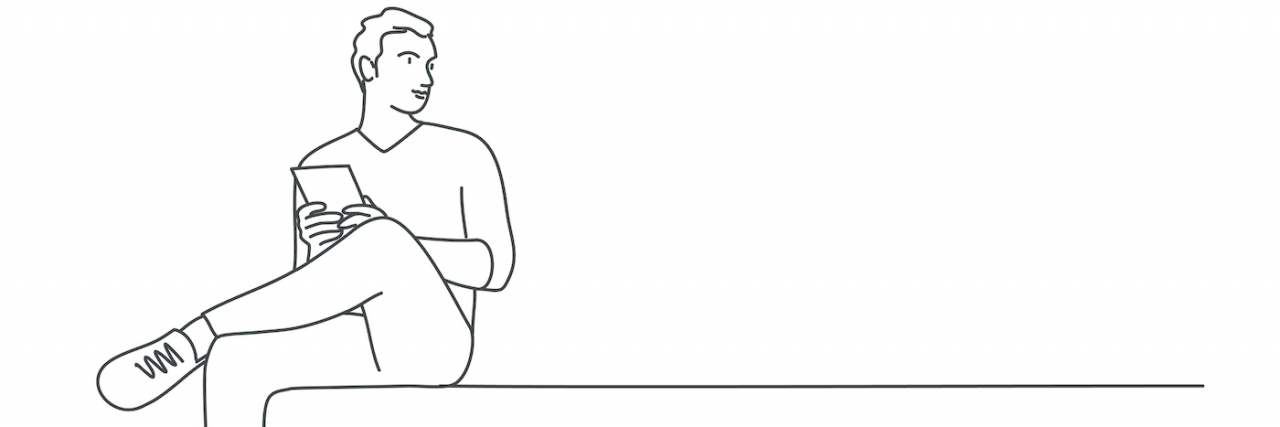I have bipolar disorder. I am a recovering alcoholic. In other words, I am “dually diagnosed.”
You are dually diagnosed when you experience a mood disorder or mental health condition in tandem with a substance use disorder.
It’s a topic that rarely sees the light of day in the canon of either psychological or layman’s literature. It also barely gets talked about and is almost completely overlooked in Alcoholics Anonymous circles.
Dual diagnosis is complicated, but very real. It is a very serious problem, one that affects as much as 50% of the 5.7 million people in the U.S. who live with bipolar disorder and are either active or recovering addicts. Major depression affects as much as 21 million Americans and when it is coupled with addiction, it sees a frequency of as high as 80%.
Here are some tips if you find yourself with a dual diagnosis:
1. Find the right doctor
This is quite a journey in and of itself. You need a psychiatrist who you have a rapport with but also who treats [insert mental illness] and addiction. These duo credentials are not easy to find.
When I moved back to Chicago in 2010, I continued via phone with my NYC psychiatrist who I liked and who was treating me for bipolar. It was so easy to pull the wool over her eyes when it came to my alcohol use, which was running rampant with two six-packs of beer or two bottles of wine or more every night. She went to bat for me when my family staged an intervention, insisting I did not have an alcohol problem and that the “one beer, once in a blue moon” that I told her was my limit was fine — certainly not an addiction.
Only when I went to Hazelden Betty Ford did they get it right. At Hazelden, they gave me a dual diagnosis of bipolar plus substance use disorder. I had a dual diagnosis, a term I’d never heard before.
I broke up with my New York psychiatrist when I received my dual diagnosis. Given the fact that she overlooked my addiction, it was the right thing to do.
But most importantly, I shopped for a new psychiatrist and took it very seriously. I saw three people before settling on the fourth. A couple of them were addictionologists. After four tries, I found the right guy, and I’ve been with him more than a decade now.
2. Read all about it
The Mighty is the perfect place to start. Here are a few articles on dual diagnosis…
Why I ‘Overshare’ My Bipolar Disorder and Addiction Journey
My Family Learned the Term ‘Dual Diagnosis’ the Hard Way
5 Tips for Supporting a Loved One With a ‘Dual Diagnosis’
But it doesn’t stop there. There are many books about bipolar or mental illness, and there are many books about addiction, but scant few that tackle the intersection of both that are not self-help or scientific treatises.
For a deeper dive, and a more compelling read, yours truly wrote a memoir about dual diagnosis. It’s titled “The Bipolar Addict: Drinks, Drugs, Delirium & Why Sober Is the New Cool.” And it chronicles my descent into alcoholism, drug abuse, and bipolar disorder. Needless to say there’s a happy ending and it can be seen as inspirational if you are someone who struggles with a dual diagnosis. It also contains an appendix of support groups and other resources.
A simple Amazon search will find self-help and scientific titles.
3. Stop ignoring that you may have a problem
When you’re manic, it’s easy to think “Oh, I’m fine.” But if you have a dual diagnosis that is untreated, you are not fine.
It’s when the going gets tough and depression and anxiety kick in that you find yourself in trouble. Bipolar depression and anxiety can be excruciating. So can unipolar depression. If you think you might have a problem, do something about it right away, so that you may not have to trudge through the pitfalls of deep and unrelenting depression.
4. Don’t self-medicate
Drinking and drugging hide your true feelings. They mask the problem underneath — your mental health. You may think you are OK if you are drinking excessively and doing drugs every day. But this is an illusion. When you’re high, you don’t have room for depression. And you may feel fine, but really you’re not.
I’ve always thought that getting drunk or high is like re-experiencing mania. If you’ve had a serious manic episode, you want to recapture that feeling and getting high might feel like replicating it. But you are treading in dangerous territory; in my experience, you are doomed to crash.
5. Reach out on social media for camaraderie, but not necessarily advice
Here on The Mighty, there is lots of camaraderie in a variety of bipolar or depression groups. Under the Groups tab, just search “bipolar” or “depression” in the Explore search bar.
Also, I just started a brand-new group called Dual Diagnosis Recovery. Come join us!
Facebook is loaded with groups. I recommend Dual Recovery Anonymous, Bipolar Coaster, and Bipolar Oasis. However, remember these are merely peer groups. You should not take medical advice from anyone; just enjoy the camaraderie.
6. Muster the courage to live with your new diagnosis
A dual diagnosis never goes away. I am an alcoholic. I’m in recovery, but still I will always be an alcoholic. Same goes for bipolar and depression; these are permanent conditions. Wiggle your way through the treacherous path and once you have a couple years under your belt, you may feel like you can manage.
Getty image by Anna Semenchenko

